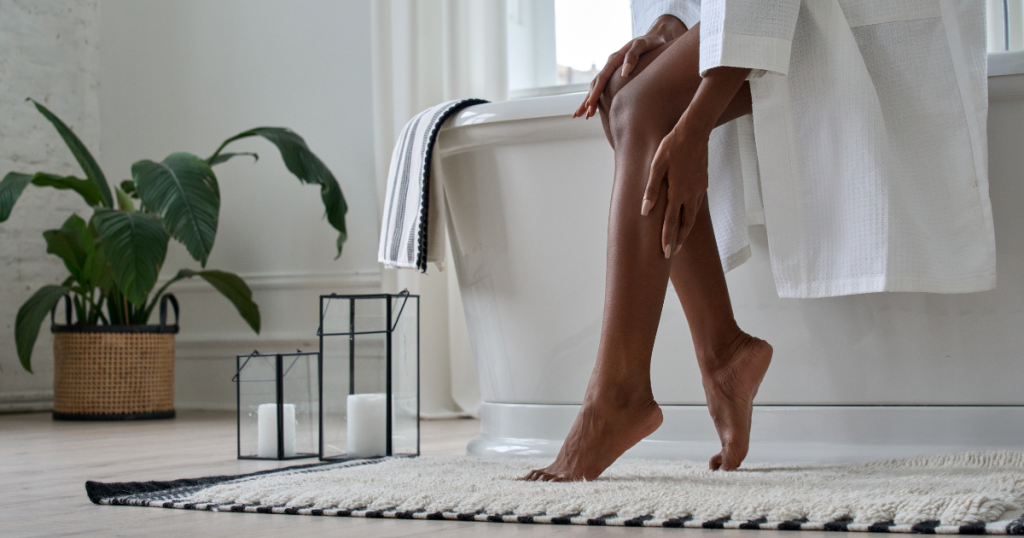Are you a Highly Sensitive Person or in a relationship with a Highly Sensitive Person? Either way, there are important things to know about Highly Sensitive People in relationships.
What is a Highly Sensitive Person (HSP)?
Highly Sensitive People are ultra-aware of what’s going on around them. HSPs process information thoroughly and respond strongly to both positive and negative input.
As a result, HSPs commonly experience the world as overwhelming.
“The world” refers to everything going on around and within a person. External stimulation includes sounds, images, smells, and taste. Internal stimulation derives from the vivid internal world of thoughts, feelings, and overall creativity.
Why the overwhelm?
HSPs are just wired that way. High Sensitivity is as natural to their makeup as having blue eyes or a size-7 foot size.
In the case of High Sensitivity, taking in a lot of information easily leads to overstimulation and a feeling that it’s all “too much.” The “too muchness” may unfortunately create the perception that the Highly Sensitive Person is “too much.”

The “too muchness” also applies to joy, gratitude, and other positive emotions. Walking by the ocean, observing Piping Plovers on the water’s edge, and feeling the sun’s warmth can be intoxicating for HSPs. As the partner of an HSP, you too benefit from his or her high-definition experience of a walk by the ocean.
HSPs make up about 15-20% of the population, with an equal male/female ratio.
HSPs themselves may not even be aware they have this trait. There’s a gigantic “aha!” moment when HSPs recognize having the trait.
The dots in life immediately connect when HSPs discover the High Sensitivity trait.
The same can be said of you if you’re in a relationship with a Highly Sensitive Person. Everything makes more sense when you recognize the High Sensitivity trait in your highly sensitive partner.
People who don’t have the trait pay less attention to subtle stimuli, approach situations more quickly, and are less emotionally reactive. They have a greater capacity to be unaffected by loud sounds (e.g. sirens) and by more subtle sounds (e.g. when a piece of silverware makes a scratching sound on a china plate).
The same kind of heightened capacity also applies to the non-HSPs other senses.
If you don’t have the High Sensitivity trait, understanding people who do have it can be challenging.
Many HSPs suffer from self-doubt or low self-esteem because their sensitivity isn’t appreciated.
How do people know if they’re Highly Sensitive or in a relationship with someone who is?
The fastest way to determine if you’re Highly Sensitive is to take the self-test that Dr Elaine Aron created. She is a pioneer in the field, and her research in the 1990’s helped to identify the trait of High Sensitivity.
If you’re wondering if your partner is Highly Sensitive, check out the same self-test and evaluate how closely it describes your partner.
Things to know about Highly Sensitive People in relationships:
1. Highly Sensitive People NEED down time to recalibrate their nervous systems.

This is not a luxury! It is for basic self-preservation. Expect your HSP partner to require alone time and maybe short breaks throughout the day to regroup.
Don’t take this personally or as rejection. It’s just your Highly Sensitive partner honoring their nervous system. Remember, the HSP’s central nervous system is constantly taking in information you don’t even notice.
The onslaught of sensory stimuli can be exhausting!
2. Highly Sensitive People have less interest and capacity to socialize, especially in a group.
Your partner is not anti-social; they just get overwhelmed more easily because of the depth of their processing and attunement to so many details. You would, too, if you were that aware of others’ emotions, especially when those emotions aren’t in sync with what’s being expressed.
Having a discussion in advance for how to navigate social occasions is helpful. Communication and compromise are key.
Socializing is also more difficult for HSPs if there’s a lot of noise, activity, or other distractions (e.g. the air temperature is hot).
So, if you’re all about partying hard, you’re probably not in a well-suited relationship!
3. HSPs are ultra-responsive to touch.

Whether fabrics are itchy or velvety, HSPs feel it. Really feel it. This is important to know so that your HSP partner has the optimal level of positive stimulation and responsiveness.
Bring on the body lotion so your skin is nice and soft for your Highly Sensitive partner! The benefits are mutual.
Your HSP partner can always recognize the sweet spot. Whether it’s mattress firmness, furry slippers, or a cozy sweatshirt, an HSP knows what feels right.
She also knows what doesn’t feel right (like that annoying tag in the sweatshirt). She may enjoy or abhor the feel of your beard. Ask her and go from there.
Ultra-responsivity to tactile joy is a plus for your relationship with a Highly Sensitive Person!
4. Highly Sensitive People notice things others don’t even see.
Your partner isn’t being picky or demanding by responding or reacting to subtleties.
The subtlety may be the way your smile changes with your mood.
It could be that one lightbulb is dimmer than the other two…or even that there’s a spider web in the distant upper corner of a room.
HSPs naturally process thoughts and feelings deeply. They tend to be curious, too. As a result, they’re often excellent problem-solvers.
You may value or despise the HSP’s “sixth sense.” Regardless, their antennae pick up on vibrations in the environment and in everyday intricacies.
Whether this is “good,” “bad,” or neither depends on perspective.
Think of it this way: Your Highly Sensitive partner must have seen positive qualities in you when you met. She had a “good sense” of who you are and of the relationship you two could have. She probably noticed “the little things,” including your quirks. And now here you are, a couple.
Perhaps your partner’s High Sensitivity is what brought you together?
5. HSPs dislike confrontation.

In relationships, Highly Sensitive People often avoid confronting their partners. They prefer to keep the peace.
Why? Because arguing creates lots of stress, and the stress becomes “too much.” HSPs then feel overwhelmed, and overstimulation sets in. With overstimulation comes anxiety, uneasiness, and misunderstandings.
Avoiding confrontation can create problems, especially when resentment builds. Over time, resentment will inevitably build. That’s just what happens when you hold things in.
One way to avoid resentment is to prioritize meaningful conversation, including “checking in with” one another. Invite warmth and understanding – rather than resentment – to build up over time.
Being in a relationship with a Highly Sensitive Person is an opportunity to live life more deeply. Especially if you’re both aware of the High Sensitivity trait, and you navigate your life with the trait in mind.
Unprecedented depths of meaning await!
Dr Elayne Daniels is a MA-based psychologist, coach, and international consultant who helps Highly Sensitive People embrace their High Sensitivity and thrive! Contact me here.
Posted in Thriving As A Highly Sensitive Person


